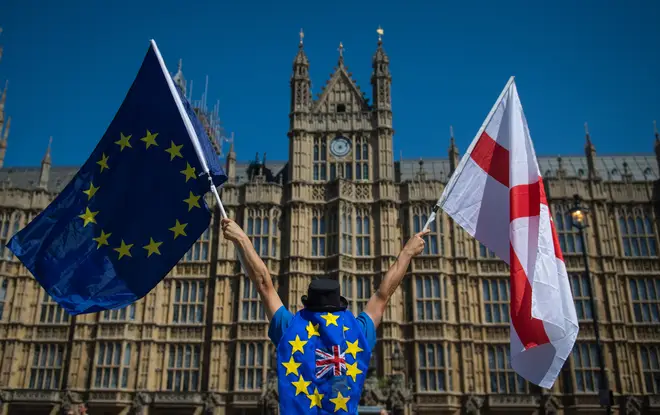
Richard Spurr 1am - 4am
24 December 2020, 17:30

The UK and European Union have reached a historic agreement on post-Brexit trade.
It will come into effect on January 1 2021 after the transition period ends.
Here are the key points we know so far - but the 500 pages of the deal have yet to be published.
The UK gave ground on fisheries, Prime Minister Boris Johnson admitted, but said that as a result of the deal the country will be "an independent coastal state with full control of our waters" and would see its share of UK fish rising "substantially".
The deal is worth £668 billion a year and will enable UK goods to be sold without tariffs or quotas in the EU market - allowing UK companies to do even more business with the continent, the Prime Minister said.

Boris Johnson: UK has taken back control of our laws and destiny
Brussels said the agreement included binding enforcement and dispute settlement mechanisms which will "ensure that rights of businesses, consumers and individuals are respected", though Mr Johnson suggested the EU had made concessions on this area.
Mr Johnson said that after January 1, British laws "will be made solely by the British Parliament interpreted by British judges sitting in UK courts and the jurisdiction of the European Court of Justice will come to an end".
The agreement provides for "continued and sustainable air, road, rail and maritime connectivity", the European Commission said, with provisions to ensure passenger rights and transport safety are not undermined.

Brexit deal brings 'certainty', says Boris Johnson
The Prime Minister said he was "absolutely confident" the deal would protect police co-operation, the ability to catch criminals and to share intelligence across the European continent "in the way that we have done for many years".
Mr Johnson said the Erasmus student exchange programme - which had seen participants able to study across Europe - would be replaced by a worldwide scheme named after Bletchley Park code breaker Alan Turing.
People and businesses must still prepare for the end of the transition period, Mr Johnson stressed, though said there were "all sorts of things" in the agreement to make sure "things flow as smoothly as we possibly can" at the borders.
The Prime Minister declined to recommend how people should celebrate the deal and the end of the transition period, saying: "I think we've done quite enough bossing people around recommending this or that over the last 10 months or so."